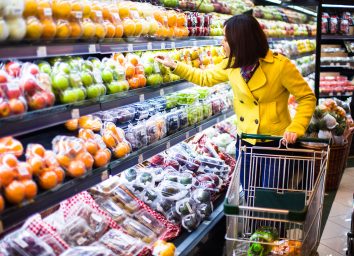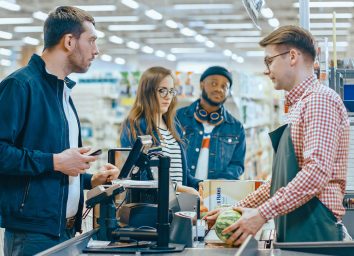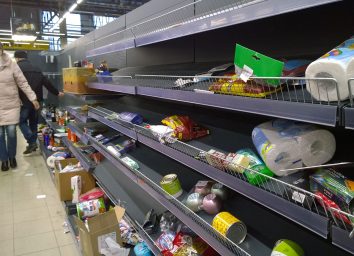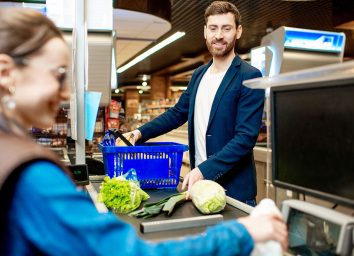5 Precautions You Must Take Before Walking into a Grocery Store
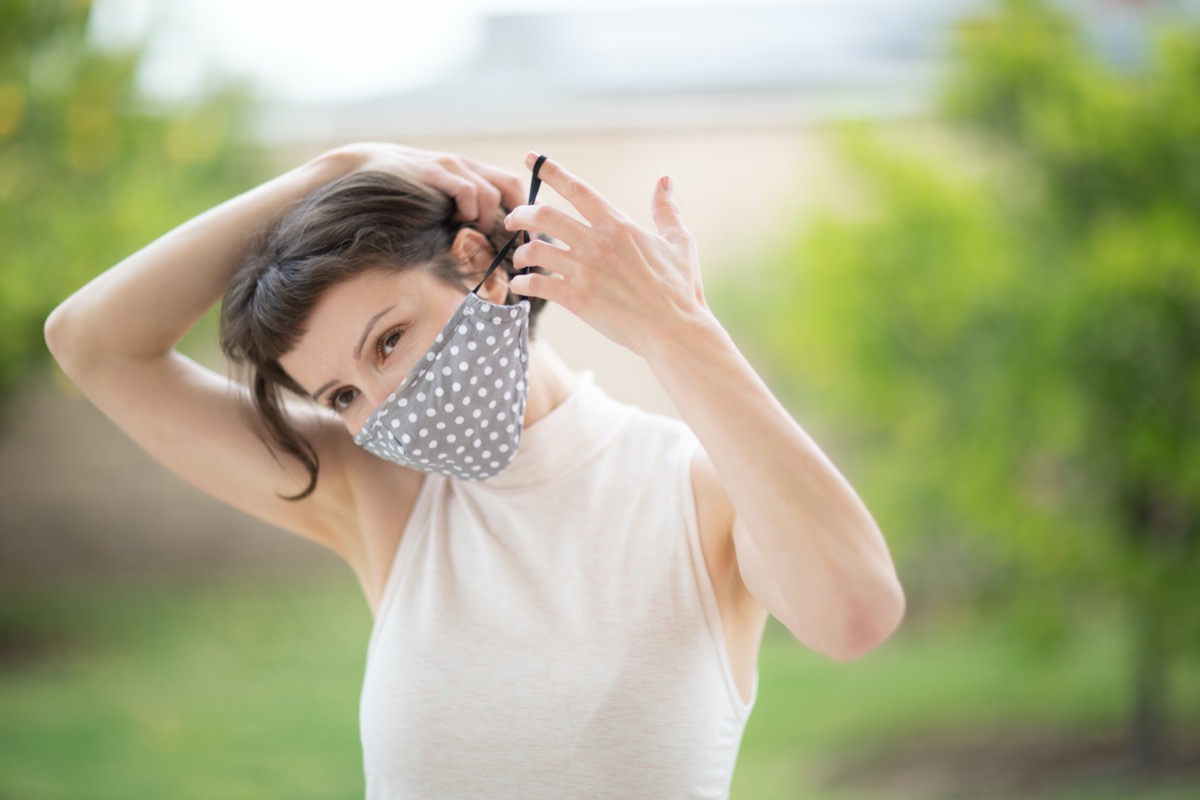
While parts of the country are starting to lift some restrictions during the coronavirus pandemic, it’s still absolutely vital that you continue to take the right safety precautions at the grocery store. The grocery store is one of the most public places you can go right now, and if you’re not careful, it can be a place that is breeding with all kinds of germs. Taking the right safety precautions will not only keep you safe and healthy, but it will also be respectful to all of those customers stepping foot in the store after you.
So before you even step foot in Trader Joe’s, Whole Foods, or wherever you like to shop, here are five safety precautions you need to take to ensure your safety and the safety of others.
Wear a mask.
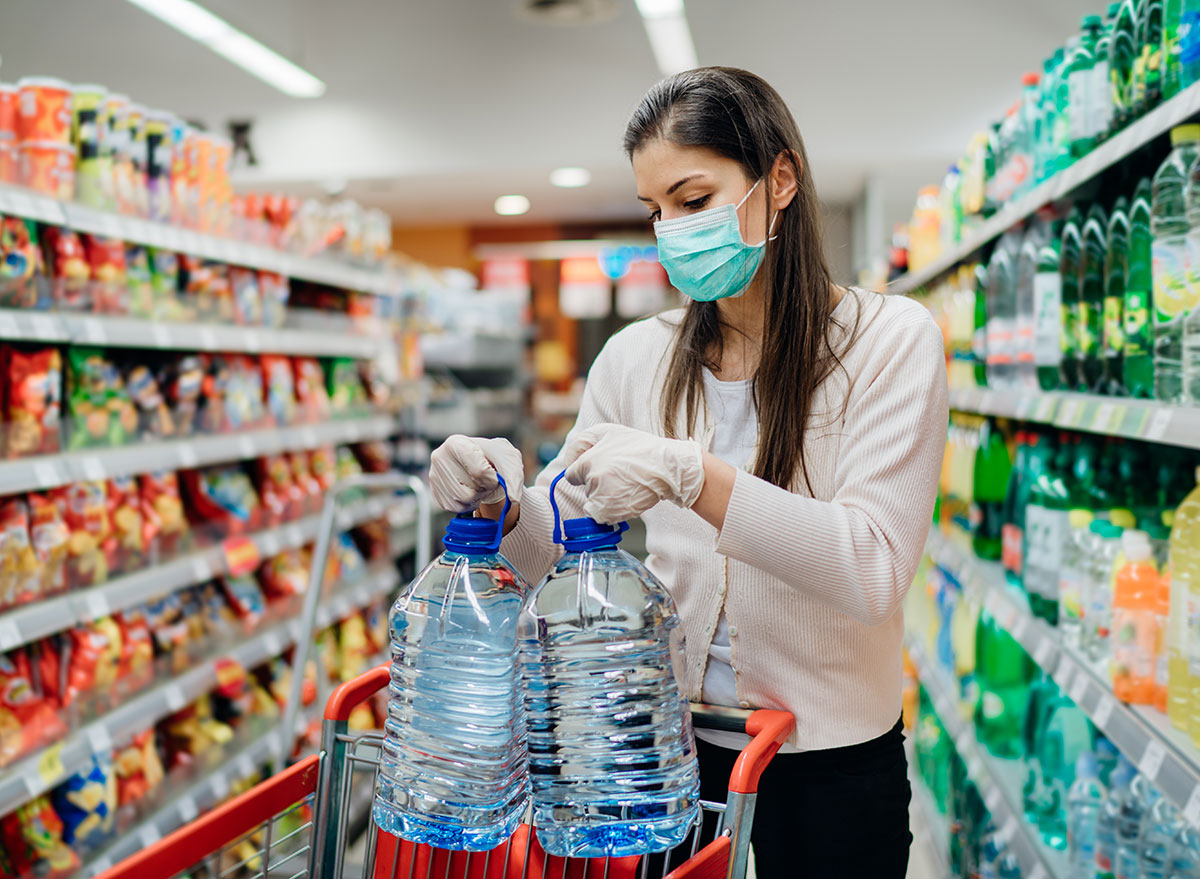
Even though this particular precaution is an obvious one at this point, it’s even more crucial that you keep that mask on when you’re in the store. According to the CDC, masks can help to prevent the spread of COVID-19, and it’s highly recommended to wear a simple cloth covering when you are in closer proximity to others—like, say, in a grocery store. It may seem like it’s not doing much, but when you look at how far a cough can spread in a grocery store when not wearing a mask, the results are pretty devastating. So do yourself, and those around you, a huge favor by wearing a mask and standing six-feet apart.
STAY INFORMED: Sign up for our newsletter to get the latest coronavirus foods news delivered straight to your inbox.
Sanitize your hands.

You probably have done the best you could to keep your hands clean so far, but it never hurts to take the extra step before you walk in. Carry around antibacterial wipes or hand sanitizer with you to sanitize your hands before stepping foot into the store. It’s these simple precautionary steps that will make all the difference in slowing the spread of coronavirus.
Be prepared to pay with a card.
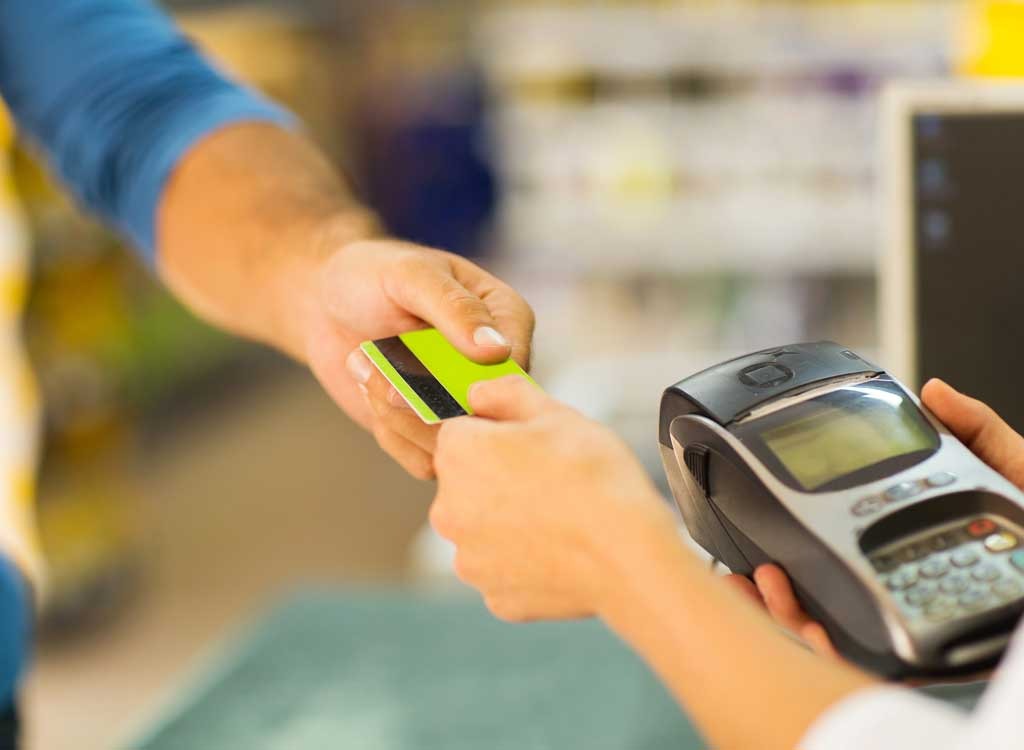
Or, if you can, try to pay with a contactless service like Apple Pay when you check out. It’s the safest way to pay at the grocery store. Doing so avoids another layer of contact with others at the grocery store, and will keep you (as well as the customers after you) safe when checking out. However, if you are paying with a card, it’s still better than paying with cash, as cash can actually hold a serious amount of diseases. So it’s safe to use a plastic card so you’re not furthering any more spread of germs.
Wipe down the cart or basket.
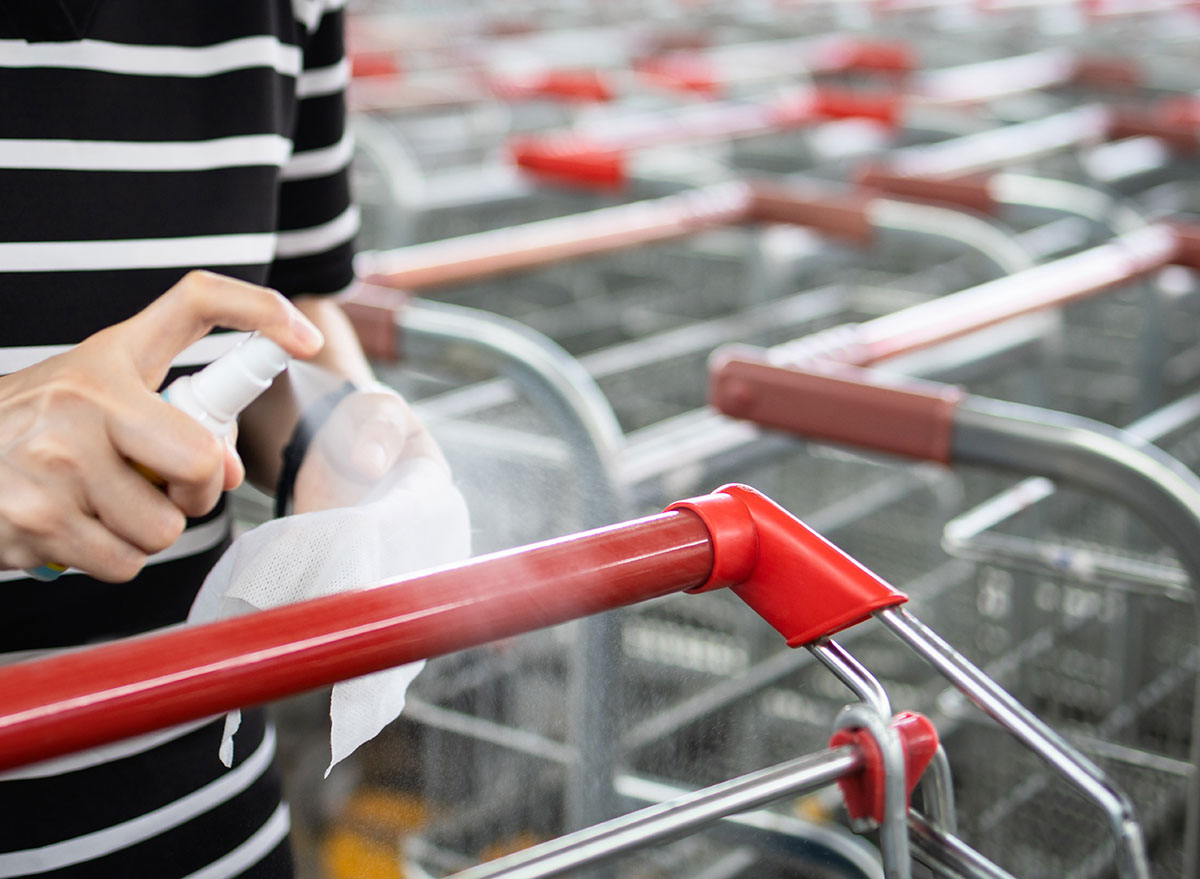
If you already have some antibacterial wipes and hand sanitizer on hand, you probably should be wiping down your shopping cart or basket as well. Why? Well, did you know that shopping carts are actually one of the germiest spots in the grocery store? Because a good majority of germs are transmitted through our hands, touching an item that has been touched by multiple sets of hands can easily cause germs to spread. One study done by ReuseTheBag.com shows how out of all the bacteria on a shopping cart handle, an average of 75 percent of gram-negative rods. These are harmful bacteria that tend to be resistant to antibodies. So keep yourself and others safe by wiping down those handles so you can avoid furthering the spread of harmful germs.
Use clean grocery bags.
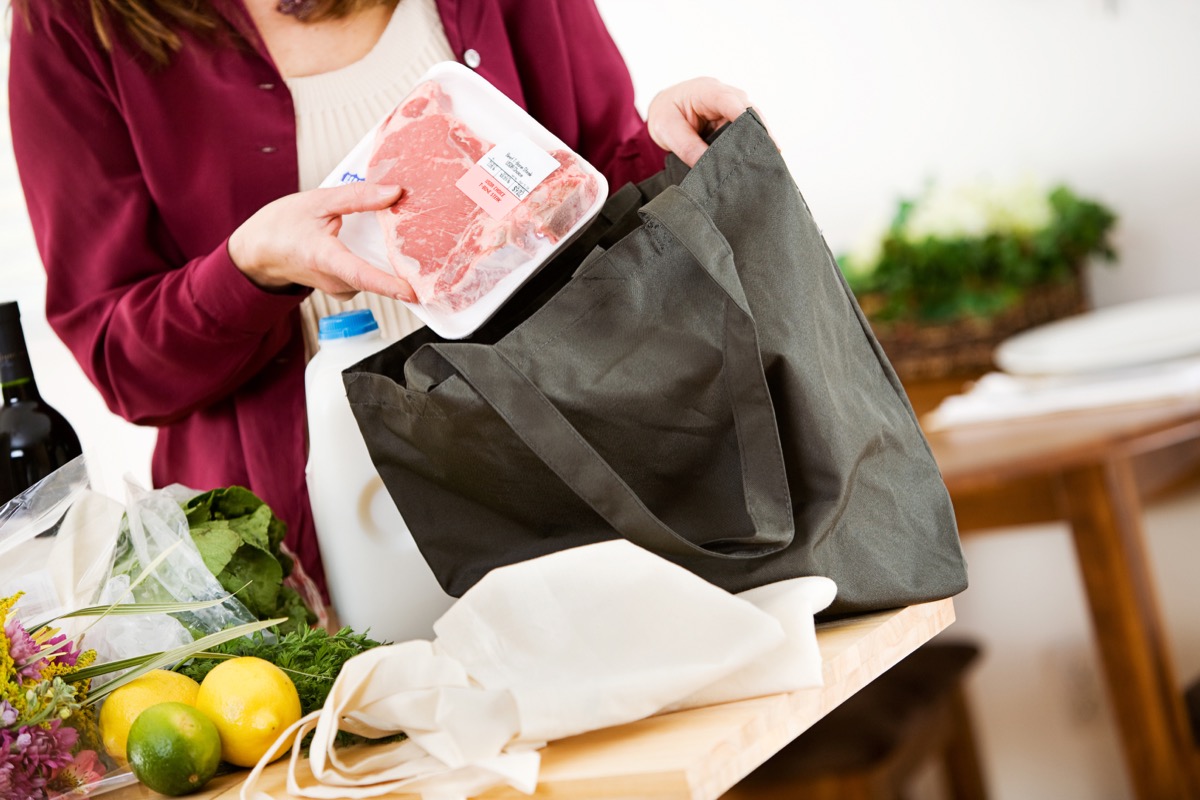
While bringing reusable bags does help decreasing the amount of plastic used, not washing those grocery bags could actually cause you to experience serious illness. One study published by the University of Arizona shows how 51 percent of reusable shopping bags actually carry coliform bacteria, and 12 percent contained E.coli. While some stores may not allow the use of reusable bags right now, if your store does, it’s best that you are washing your reusable grocery bags in between use and walking in with a clean set.
